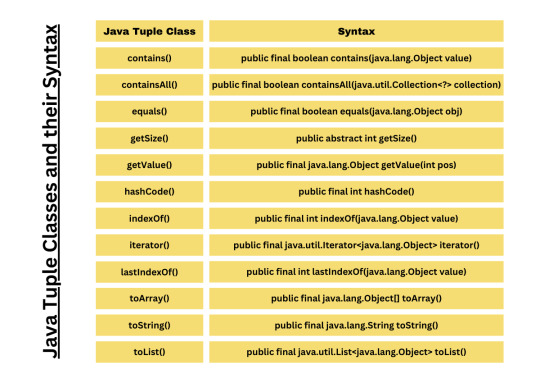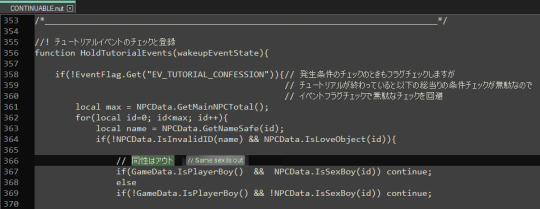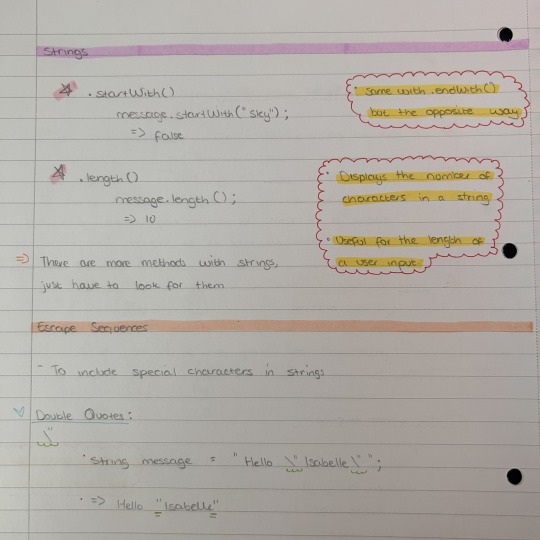#Java syntax
Explore tagged Tumblr posts
Text
Can I prepare for Java interviews through short-term courses?

1. Understanding the Importance of Java Interviews
If you are asking, "Can I prepare for Java interviews through short-term courses?" then the answer is yes. Java interviews tend to be based on basic programming concepts, core Java, and also frameworks such as Spring and Hibernate. Short-term courses are meant to learn these things quickly in an organized and hands-on manner. These courses provide candidates with clarity regarding real-time situations, coding problems, and technical queries that are usually posed in interviews. For working professionals or freshers, these courses are a time-saving route. If supplemented by mock interviews and technical evaluations, they are highly effective. It is not surprising then that a lot of people inquire, "Can I prepare for Java interviews using short-term courses?" and discover that these targeted courses are a safe bet.
2. What Are Short-Term Java Courses?
Short-term Java courses are quick, comprehensive courses that teach the basics of Java programming and supporting tools within a couple of weeks or months. If you're still wondering, "Can I prepare for Java interviews through short-term courses?", then look at the syllabus: object-oriented programming, exception handling, collections, multi-threading, JDBC, etc. These courses can be taken from local institutes through flexible schedules. In cities like Coimbatore, a Java course in Coimbatore can be designed specifically for job interview purposes. You'll also come across courses such as the Java full stack developer course in Coimbatore that combine backend and frontend training with Java as the nucleus.
3. Specialized Interview Preparation
One of the main reasons individuals wonder, "Can I prepare for Java interviews with short-term courses?" is due to the organized interview preparation provided by such courses. These courses involve interview-specific modules like coding tests, data structures, and practice algorithms. All of them also do mock interviews and resume-writing workshops. Whether for service companies or leading tech giants, these courses give you actual problems and live coding challenges. This combined with a solid java training in Coimbatore, the candidates boost their technical and communication confidence. They enter interviews prepared, not guessing. Therefore, it's certain that "Can I prepare for Java interviews through short-term courses?" isn't a question, but a sound strategy.
4. Advantages of Short-Term Learning
Short-term courses have various advantages such as time efficiency, cost-effectiveness, and concentrated learning. This is why students frequently wonder, "Can I prepare for Java interviews through short-term courses?" Because in a span of a few weeks, students acquire both practical and theoretical knowledge. They also get exposure to interview-type questions, which standard college courses tend to miss. Most short-term java courses in Coimbatore are constructed by professionals to meet the needs of today's jobs. From Core Java to Spring Boot and Hibernate, the short courses provide focused and hands-on training. No surprise then that this question, "Can I prepare for Java interviews through short-term courses?", keeps gaining traction.
5. Importance of Location-Based Training
In seeking good Java interview training, location is key. A java training in Coimbatore provides the advantage of offline sessions, local guidance, and networking with hiring partners. Have you ever wondered, "Can short-term courses prepare me for Java interviews?" Local courses in technology-developing cities such as Coimbatore provide great opportunities. Institutes also have weekend batches and evening batches to cater to working professionals. You can even take a java fullstack developer course in Coimbatore to open your profile beyond Java. These courses make sure that you are not only interview-ready, but also for actual software development positions.
6. Fullstack Interview Skills
A few jobs need more than Java. Employers want individuals who are proficient in front-end as well as back-end. If you have asked yourself, "Is it possible to prepare for Java interviews with short-term courses?", then opting for a java fulls tack developer course in Coimbatore can be extremely helpful. These courses comprise HTML, CSS, JavaScript, React, and Java, JDBC, and Spring. This combination enhances your possibilities of clearing fullstack interview to some extent. Businesses usually like multi-talented developers, and such short-term programs turn you into one. The secret to answering, "Can I prepare for Java interviews through short-term courses?", is selecting the correct course with depth and breadth.
7. Real-Time Projects and Practical Experience
If you pose the question, "Can I prepare for Java interviews through short-term courses?", the importance of real-time projects cannot be overemphasized. Projects provide practical experience in using Java in real-life situations. They are also good interview conversation points. Most of the java courses in Coimbatore incorporate more than one project-based learning module. From creating e-commerce websites to API integrations, these projects make you think like a developer. Particularly in fullstack programs, hands-on plays a key role in solving real-time problems. This makes your response to "Can I prepare for Java interviews through short-term courses?" a strong yes—with evidence of work to support.
8. Placement Support and Career Services
Another excellent reason for asking "Can I prepare for Java interviews through short-term courses?" is the inbuilt placement assistance. Leading training institutions provide placement drives, internship assistance, and company tie-ups. This is a major reason students like a java course in Coimbatore with placement assistance. Along with resume preparation, aptitude training, and personality development classes, students get well-prepared for interview sessions. Some institutions also offer certifications that enhance credibility. So when you wonder "Can I prepare for Java interviews with short-term courses?", you're not only preparing—you're paving the way for actual employment opportunities.
9. Who Should Opt for Short-Term Courses?
Short-term courses on Java are ideal for college students, fresh graduates, career changers, and working professionals. If you yourself wonder, "Can I prepare for Java interviews with short-term courses?", then evaluate your goals and timeframe. These courses are made to give maximum output in the shortest time. Whatever course you opt for a java fullstack developer course in Coimbatore or a core Java course, you'll learn skills that employers need. The courses are budget-friendly, flexible, and specialized. Anyone seeking to get into Java development jobs will see short-term training as perfect. So yes, "Can I prepare for Java interviews through short-term courses?" Yes, absolutely, you can—and you should.
10. Conclusion: Make Your Move with Xplore It Corp
Summing up, "Can I prepare for Java interviews through short-term courses?" is a question that can lead to actual opportunities. With the proper training, project experience, and mentorship, you can crack Java interviews with confidence. Whether you opt for a java course in Coimbatore, a java training in Coimbatore, or a java full stack developer course in Coimbatore, you'll get hands-on knowledge and career guidance. Opt wisely, spend your time well, and prepare well. At Xplore It Corp, we assist students and professionals in taking the next step through industry-relevant short-term programs optimized for interview excellence.
#Java programming language#Java code#Java software development#Java apps#Java platform#Java runtime#Java IDE#Java virtual machine (JVM)#Java syntax#Java tutorials#Java classes
0 notes
Text
I've been depressed the last couple of weeks so I decided to watch an Bee and Puppy Cat and please tell me why I saw Java snippet of subtracting and adding to the digits of Pi???
I kind find interesting they decided to write in Java, which is a multi platform language well known and stablished in the Industr and who is Jackson Nathan???
#bee and puppycat#i noticed syntax error and data types misha dling but you know#but i mean its a cartoon about a little robot and a intergalactic cat taking temp jobs#so it wasnt like i was expecting accuracy so it was a pleasant surprise#interesting choice using java of all laguages#it would be a good idea to learn java#but im barely holding it together with Python and JavaScript#they work well for me in the meantime#maybe in the future
2 notes
·
View notes
Text
Nothing like chasing a failed unit test for days and getting more and more upset just to find a typo!
#codeblr#java#java programming#learning programming#learning new syntax#csharp is superior#csharp programming#csharp#programming humor#programming#programming woes#funny mistakes#cosmickittytalk
16 notes
·
View notes
Text
Java Tuple Classes and their Syntax
Let us see Java Tuple Classes and their Syntax:

#java#programming#javaprogramming#code#coding#engineering#software#softwaredevelopment#education#technology#tuple#javatuple#classes#syntax#online
1 note
·
View note
Text
Makes sense to me. stream() is a method of list which returns a stream of objects. You then pass an iterator method, which takes an object as a parameter, to the stream’s forEach() method. list2::add is a static reference to the method add() on list2, and forEach() supplies it with an object to be added.
You’re basically just turning a list into another collection of objects which can be iterated over, then setting the iterative method to one which adds the items to another list. I think it could be cleaner by ditching the whole “stream()” thing, but it’s a pretty understandable syntax overall.
i fucking hate writing java dude what do you mean list.stream().forEach(list2::add)??!
syntax written by clowns
#I’m not even that familiar with Java#I’m more of a C sharp guy#But this still makes sense to me because of my experience with JavaScript and other languages with a C-like syntax
396 notes
·
View notes
Text
What is the basic syntax of Java?
Syntax refers to the rules and structure of a programming language that determine how statements are written and executed. In Java, syntax defines the order and structure of code, including the use of keywords, operators, and other programming elements. Basically, in Java, syntax errors occur when the rules of the language are not followed, resulting in failure to compile or execute the code.
0 notes
Text
Method References
Java method references are a replacement for lambda expressions that aid in clarity and brevity when the lambda expression would only reference an existing, named method.
TIP: References Quick List Java: Lambda Expressions Java: Method References Javadoc: Package java.util.function Javadoc: package java.util.stream Table of Contents Table of ContentsIntroductionConstructor ReferencesInstance Method ReferencesArbitrary Instance Method ReferenceStatic Method ReferencesExample CodeSummary Introduction When using a Java Stream (or other methods that would accept…

View On WordPress
0 notes
Text
Is Java harder or easier than other programming languages?
#Java#programmingLanguages#coding#difficultyLevel#comparison#programming#syntax#learning#abstraction#features
0 notes
Text
Conjunction(String word, String junction)
{
If (junction == not) then ( junction = “n’t”);
Conjunction = word + junction;
Return conjunction;
}
Rate your favorite logic notation
351 notes
·
View notes
Text
The Future of Java: Exploring Project Amber and Its Impact on Modern Java Development

1. Introduction to Project Amber and Java's Evolution
The world of software is all a-buzz with The Future of Java: Project Amber and What's Coming Next.Java, which has long been touted for its strength, is still updating itself with fresh projects such as Amber, which simplify coding and make it more expressive. If you're a seasoned programmer or embarking on a java course in Coimbatore, these developments provide a glimpse into a more compact, readable Java. Java development keeps pace with industry requirements and keeps students up-to-date. Project Amber is the driving force behind this interesting future.
2. What Is Project Amber?
Project Amber is an open-source project by Oracle aimed at speeding up Java language improvements. It targets small, productivity-oriented features such as local-variable type inference and pattern matching. These enhancements ease difficult code, making Java more appealing to newcomers and experts alike. For someone taking a Java Full Stack Developer Course in Coimbatore, it is imperative to know about Project Amber since it reflects the direction Java is moving. The Future of Java: Project Amber and What's Coming Next starts with learning these new features.
3. Important Features Introduced by Project Amber
Project Amber introduces strong features like `var` for local variables, records, sealed classes, switch expressions, and pattern matching. These improvements ease the syntax of Java, which makes coding easier for developers to create clean, readable code. Whether one is pursuing a java course in Coimbatore or self-learning, these updates assist one in keeping up with new development trends. Knowing these developments is important for anyone looking into The Future of Java: Project Amber and What's Coming Next and wanting to remain competitive in the job market.
4. Benefits for Java Learners and Developers
With Amber's features, code has less boilerplate code and more effective logic. This is particularly useful for students in a java training in Coimbatore course. New syntax improvements lower the learning curve and raise the speed of development, making Java more novice-friendly. As you read The Future of Java: Project Amber and What's Coming Next, you'll find that Java is keeping pace with contemporary programming patterns to enable new and seasoned developers alike to achieve faster and create applications more quickly.
5. Project Amber and Enterprise Development
Big apps, particularly finance and health apps, are based on Java. Project Amber strengthens Java's position in enterprise applications by delivering compact syntax without jeopardizing safety. For a Java Full Stack Developer Course in Coimbatore student, that means you will be taught to develop scalable, high-performance apps. Studying The Future of Java: Project Amber and What's Coming Next helps you know how Java's language-level enhancements extend to enterprise-level systems.
6. Java in the Job Market: Why Amber Matters
Industry professionals hire developers who grasp contemporary Java and features added by Project Amber. Attending a java course in Coimbatore and becoming familiar with records, pattern matching, and switch expressions provides a huge edge. These are not only esoteric tools—they're now present in actual job interviews and assignments. The Future of Java: Project Amber and What's Coming Next is industry-oriented, and getting command over it enhances your employability in the competitive world.
7. How Amber Facilitates Full Stack Java Development
Project Amber's efficient coding features enable smoother full stack development. When you're dealing with backend (Java) as well as frontend (for instance, Angular or React), every enhancement in productivity counts. A Java Full Stack Developer Course in Coimbatore covers these efficiencies as a part of developing solid apps. The Future of Java: Project Amber and What's Coming Next applies not just to core Java—it fits comfortably into the entire development stack, so Amber is an important learning item for contemporary full stack developers.
8. The Role of Java Training in Embracing the Future
Amber Understanding needs structured learning, so java training in Coimbatore becomes a necessity. Having the new features explained by teachers, students understand complicated matters with ease. Training sessions now offer revised modules on Amber's new additions, readying students for current Java development. The Future of Java: Project Amber and What's Coming Next already forms a part of Java certification material, so the time to initiate or continue your learning process through structured Java training is now.
9. Preparing for Java's Next Decade
Java is not only living; it's flourishing with careful improvements such as those from Project Amber. While other languages wax and wane in popularity, Java is still essential in enterprise environments, mobile applications, and cloud computing. If you're taking a Java Full Stack Developer Course in Coimbatore or a java course in Coimbatore, you're on board with one of the most future-resistant programming languages. The Future of Java: Project Amber and What's Coming Next highlights how the current students can create the future of tech.
10. Conclusion: Xploreit Corp Pioneers
For professionals and students committed to learning The Future of Java: Project Amber and What's Coming Next, the right training institute is crucial. With world-class curriculum and live projects, Xplore It Corp is one of the best institutions for java training in Coimbatore, providing specialized streams like the Java Full Stack Developer Course in Coimbatore. Stay ahead of the curve in the tech industry by learning Java the intelligent way—with current skills, industry knowledge, and personalized mentorship.
#Java training institute#Java course syllabus#Learn Java online#Java course for beginners#Java full stack course#Java programming language#Java development#Java features#Java updates#Java code examples#Java syntax#Object-oriented programming#Java virtual machine (JVM)#Java frameworks
0 notes
Text
youtube
Presumptions in Programming
This post reflects on what Dr. Kanojia said in his video about assumptions and communications. I am importing outside concepts into to computer science. As I understand it, efficient communication depends a lot on presumptions. When you communicate with someone you presume that person understands. The magic happens when those presumptions are valid.

His model of communication looks like the figure [exhibit 1A]. You have the speaker on the left. The listener on the right. The blue lane represents the full information we want to convey. The green lane represents the actual information transmitted. The orange lane represents the information presumed.
I would say that efficient communication depends a lot on the green lines to be as small as possible. This means that the orange lines will be larger. What this translates to is that the listener needs to be highly educated or trained.
The figure [exhibit 1B]. On the left is the programmer. On the right is the assembler. Assembly language is a 1 to 1 correlation of instruction to code. Therefore I made the green line is solid. There are no presumptions we can rely on, hence there is no orange line. Speaker does all the work.
The figure [exhibit 1C]. On the right is the compiler of a higher level language. Languages like Pascal, C, BASIC, JAVA, etc. Less information is transmitted in the green lane. There are presumptions made hence the orange lane contains information. Compiler does some of the work.
The figure [exhibit 1D]. Its the ideal situation. One instruction means a whole lot of work gets done. Like when the emperor issued order 66. That was the end of the Jedi. In computer programming this happens in function calls. One API call means a whole lot of work gets done.
In conclusion the job of a language is to be able to convey as much information as possible with the least amount of effort. This is called the “code expression” capacity of a language. Some people use the term “compressibility” of information in a language. UncleBob explains code expression using the LISP language. LISP is mostly parenthesis and commas. And you can do a lot with just parenthesis and commas. Hence its said LISP has a high amount of code expression. It can be argued thou that LISP programs can become long and cryptic. UncleBob likes the least amount of syntax. But sometimes the more syntax a language has, the more “compressibility” of information its capable of.
19 notes
·
View notes
Text
honestly don't hate OOP despite being a seething functionalcel. like obviously polymorphism is the wrong way to go about it, we know that now, but if you don't fuck up exactly like java but on purpose you're fine. you can imitate all kinds of like metaprogramming stuff without making syntax weird
101 notes
·
View notes
Text
Made a small simple tax rate thingy in Java! I think I'm getting the hang of the syntax slowly! (Yes I'm aware that my laptop is a dust montser.)

#Java#programming#learning programming#java programming#learning#learning new syntax#girls who code#Csharp to Java#cosmickittytalk
17 notes
·
View notes
Text

cmd: homophobia -> delete
ANB Mod Update
Been a minute since I posted about mod progress. I did end up having to use the gender swap method for the main character, and all is going well. Currently in the playtesting/dialogue hunt phase. As before, I've been fixing any preexisting typos that I come across along the way.

Gaia always knows the right thing to say.
Breaking News: ANB Secretly Run by Squirrels
It turns out that A New Beginning is written in a language called Squirrel. This game is the first I've heard of it, but it reads like a hybrid of Java and Lua with minor squirrel-themed syntax sprinkled in, such as how script files use the ".nut" extension. I love knowing that the game devs chose a somewhat obscure language themed after little forest critters.
#devblog#a queer beginning#harvest moon mod#romhacking#story of seasons#harvest moon#bokumono#gay mod#modding#powered by squirrels
32 notes
·
View notes
Text
Tierlist part 4: Python
Python is an interesting case. On one hand i absolutely hate it. The dynamic type system is not fun to work with especially when you accidentally have created a reference to an array instead of cloning it. I have never gotten round to completely understanding how class work cause it just seems like a mess. On the other hand it's a great toy. There is just a bunch of syntax like for else and the most important list comprehension that makes it an ideal playground for the writing the most cursed code. It's a good entry to code golfing because of that. So that leaves the question of where to put it. So uhmmm, let me just find the knife and do a little dissecting. There. Perfect. A tier as a toy. D tier as a language to write actual projects in.

Part 3
#Possibly a bit mean towards python but i can't be kind if there is dynamic types. I am C-official after all#Seems its a good time to add conlangs to the poll#Somehow i haw voted the most popular option each time. That will probably change soon.#Im at work now and should get back to write php :(#c-official
16 notes
·
View notes
Text
Old Java Notes


Sunday 27th August 2023
I found some of my old Java notes I made during my apprenticeship early last year! I don’t use Java now at all but it’s cool to look back at what I used to study on! Then, because my work place used C#, the class turned to a C# class instead!
for some reason I couldn’t understand Java but I could understand C# even though their syntax are similar and other things? Anyhoo, I still prefer C# over Java now 🥰✨🙌🏾
#xc: side note post#codeblr#coding#progblr#programming#studyblr#studying#computer science#tech#java#java programming
109 notes
·
View notes